 W
WThe British Library is the national library of the United Kingdom and is one of the largest libraries in the world. It is estimated to contain between 170 and 200 million items from many countries. As a legal deposit library, the British Library receives copies of all books produced in the United Kingdom and Ireland, including a significant proportion of overseas titles distributed in the UK. The Library is a non-departmental public body sponsored by the Department for Digital, Culture, Media and Sport.
 W
WThe British Museum Act 1902 was an Act of Parliament of the Parliament of the United Kingdom, given the royal assent on 22 July 1902 and repealed in 1963.
 W
WThe Alan Turing Institute is the United Kingdom's national institute for data science and artificial intelligence, founded in 2015. It is named after Alan Turing, the British mathematician and computing pioneer.
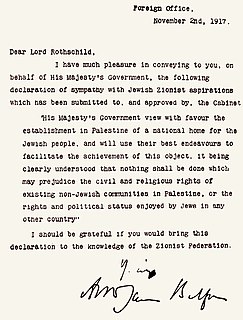 W
WThe Balfour Declaration was a public statement issued by the British government in 1917 during the First World War announcing support for the establishment of a "national home for the Jewish people" in Palestine, then an Ottoman region with a small minority Jewish population. The declaration was contained in a letter dated 2 November 1917 from the United Kingdom's Foreign Secretary Arthur Balfour to Lord Rothschild, a leader of the British Jewish community, for transmission to the Zionist Federation of Great Britain and Ireland. The text of the declaration was published in the press on 9 November 1917.
 W
WThe British Library Board Act 2021 is an act of the Parliament of the United Kingdom. The act allows the board of the British Library to borrow money.
 W
WThe British Library is the national library of the United Kingdom and is one of the largest libraries in the world. It is estimated to contain between 170 and 200 million items from many countries. As a legal deposit library, the British Library receives copies of all books produced in the United Kingdom and Ireland, including a significant proportion of overseas titles distributed in the UK. The Library is a non-departmental public body sponsored by the Department for Digital, Culture, Media and Sport.
 W
WThe British Museum Reading Room, situated in the centre of the Great Court of the British Museum, used to be the main reading room of the British Library. In 1997, this function moved to the new British Library building at St Pancras, London, but the Reading Room remains in its original form at the British Museum.
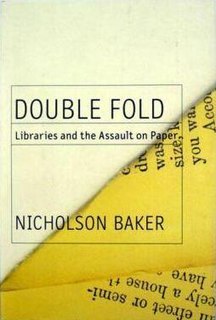 W
WDouble Fold: Libraries and the Assault on Paper is a non-fiction book by Nicholson Baker that was published in April 2001. An excerpt appeared in the July 24, 2000 issue of The New Yorker, under the title "Deadline: The Author's Desperate Bid to Save America's Past." This exhaustively researched work details Baker's quest to uncover the fate of thousands of books and newspapers that were replaced and often destroyed during the microfilming boom of the 1980s and 1990s. Double Fold is a controversial work and is not meant to be objective. In the preface, Baker says, "This isn't an impartial piece of reporting", and The New York Times characterized the book as a "blistering and thoroughly idiosyncratic attack".
 W
WThe Endangered Archives Programme (EAP) is a funding programme and digital archive run by the British Library in London. It has the purpose of preserving cultural heritage where resources may be limited. Each year EAP awards grants to researchers to identify and preserve culturally important archives by digitising them in situ. The original archival material does not leave the country of origin, and projects often incorporate local training and career development. EAP focuses on material created before the mid twentieth century.
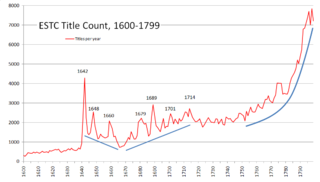 W
WThe English Short Title Catalogue (ESTC) is a union short-title catalogue of works published between 1473 and 1800, in Britain and its former colonies, notably those in North America, and primarily in English, drawing on the collections of the British Library and other libraries in Britain and around the world. It is co-managed by the British Library and the Center for Bibliographical Studies and Research (CBSR) at the University of California, Riverside. The database is freely searchable.
 W
WFragmentarium is an online database to collect and collate fragments of medieval manuscripts making them available to researchers, collectors and historians worldwide. It is an international collaboration of major libraries and collections including the British Library, Bibliothèque nationale de France, Martin Schøyen Collection, Bavarian State Library, Harvard, Yale and the Vatican. It is based in Switzerland and the project's current director is Professor Christoph Flüeler from the University of Fribourg and the Virtual Manuscript Library, Switzerland.
 W
WThe Friends of the British Library is a registered charitable organisation in the UK with close links to the British Library. It provides funding in the form of grants to the British Library in order to allow the Library to acquire new items and collections, procure new equipment and facilities, and produce exhibitions.
 W
WThe Incunabula Short Title Catalogue (ISTC) is an electronic bibliographic database maintained by the British Library which seeks to catalogue all known incunabula. The database lists books by individual editions, recording standard bibliographic details for each edition as well as giving a brief census of known copies, organised by location. It currently holds records of over 30,000 editions.
 W
WThe India Office Records are a very large collection of documents relating to the administration of India from 1600 to 1947, the period spanning Company and British rule in India. The archive is held in London by the British Library and is publicly accessible. It is complemented further by the India Papers collection at the National Library of Scotland in Edinburgh.
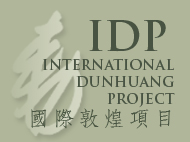 W
WThe International Dunhuang Project (IDP) is an international collaborative effort to conserve, catalogue and digitise manuscripts, printed texts, paintings, textiles and artefacts from the Mogao caves at the Western Chinese city of Dunhuang and various other archaeological sites at the eastern end of the Silk Road. The project was established by the British Library in 1994, and now includes twenty-two institutions in twelve countries. As of 18 February 2021 the online IDP database comprised 143,290 catalogue entries and 538,821 images. Most of the manuscripts in the IDP database are texts written in Chinese, but more than fifteen different scripts and languages are represented, including Brahmi, Kharosthi, Khotanese, Sanskrit, Tangut, Tibetan, Tocharian and Old Uyghur.
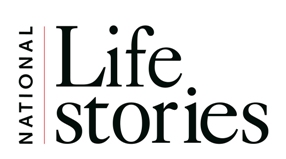 W
WNational Life Stories is an independent charitable trust and limited company based within the British Library Oral History section, whose key focus and expertise is oral history fieldwork. Since 1987 National Life Stories (NLS) has initiated a series of innovative interviewing projects funded almost entirely from sponsorship, charitable and individual donations.
 W
WNewton, sometimes known as Newton after Blake, is a 1995 work by the sculptor Eduardo Paolozzi. The large bronze sculpture is displayed on a high plinth in the piazza outside the British Library in London.
 W
WOne Day in History was a single-day initiative by several UK heritage organisations that aimed to provide a historical record of the everyday life of the British public in the early 21st century. Described as the "world's biggest blog", it encouraged UK citizens to write diary entries of 100–650 words of what they had done on 17 October 2006, and then upload them to the official website of the initiative. The project formed a part of History Matters: Pass It On, a history campaign led by several UK heritage organisations. Submissions were received until 1 November, and 46,000 entries were uploaded in this time, many of which were from students and celebrities. After being available to view on the History Matters website, the archive of the diary entries was moved to the UK Web Archive at the British Library and the library of the University of Sussex. The campaign received mixed reviews, with Institute of Historical Research's David Cannadine and The Guardian's Dave Hill speaking positively of it, whereas journalist John Plunkett termed it to be a "historical record of people with computers".
 W
WThe British Museum Library: a Short History and Survey is a book by Arundell Esdaile(M.A., Litt.D., F.L.A.) published by George Allen & Unwin, London, in 1946. It was reprinted in 1979 by Greenwood Press, Westport, Conn. from the 1948 ed. published by G. Allen & Unwin, London, which was issued as no. 9 of the Library Association series of library manuals. Esdaile's book serves as a historical survey of the British Museum Library when the museum and library departments were housed in the same building. The book traces the entire history of the institution, from 1753 to 1945.
 W
WIn 1757, the actor David Garrick commissioned the sculptor Louis-François Roubiliac to make a full-size marble statue of William Shakespeare for Garrick's octagonal Temple to Shakespeare, erected near his villa beside the River Thames at Hampton, to the west of London. The sculpture cost 300 guineas and was installed at Garrick's temple in 1758; it remained there until it was bequeathed to the British Museum along with Garrick's books in 1779. The sculpture was transferred to the new British Library in 2005, where it is displayed on a new travertine plinth beside the main staircase in the main entrance hall.
 W
WWest Africa: Word, Symbol, Song was a major four-month exhibition at the British Library in London — the first of its kind in the UK to explore in detail the cultural history of the region, through literature, artefacts, art, music and performance — which ran from 16 October 2015 to 16 February 2016. It has been described as "undoubtedly the most ambitious exhibition to date at the British Library".
 W
WSir Colin Alexander St John ("Sandy") Wilson, FRIBA, RA, was an English architect, lecturer and author. He spent over 30 years progressing the project to build a new British Library in London, originally planned to be built in Bloomsbury and now completed near Kings Cross.